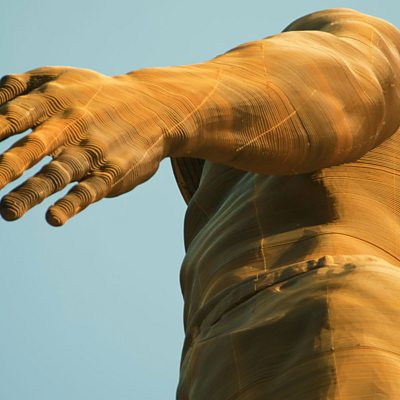Episode details

Available for over a year
It was a beautiful morning. Children lined up in the playground before school. Parents headed to work. Grandparents tended their gardens. Then, at 8.16, came the flash that changed everything. The gruesome explosionтІ instantly vapourised children in their playgrounds, parents, grandparents, friends and neighbours. The dropping of the atomic bomb above Hiroshima - a town of similar size to Newcastle or Bristol - remains the deadliest use of a single weapon in human history. Today is the 80th anniversary of that horrific event. At the time some people justified the bombing. President Truman, who had given the green light for the drop, said in a national radio broadcast: тWe have used it in order to shorten the agony of war, in order to save the lives of thousands and thousands of young Americans.т The bombing of Hiroshima remains a deeply controversial military decision. It may have been an effective demonstration of political and technological might, but it was marked by a chilling indifference to human life and suffering. The plane that delivered the bomb was named тEnola Gayт, after the pilotтs mother. The bomb itself was christened тLittle Boyт. How cruelly ironic that the machinery of death was humanised, while humanity was stripped from those it destroyed. Civilians were reduced to тcollateral damageт and тacceptable lossesт. Eighty years after Hiroshima, I find myself wonderingтwhat have we learned? Todayтs nuclear arsenals hold the power of hundreds of thousands of Hiroshima bombsтenough to destroy the world many times over. Since the invasion of Ukraine, Russiaтs threshold to use nuclear weapons has been reduced. Bombs have struck Iranтs nuclear sites. Even this week, American nuclear submarines have been moved closer to Russian waters. Whenever I feel afraid for the future of our planet I turn to the Bible. I read the words of Jesus, who was no stranger to conflict, and yet became known as the Prince of Peace. When Jesus was arrested, and about to be brutally killed under a warring imperial regime, he told his friend to disarm. тPut your sword back in its place,т he said to Peter, тfor all who take the sword will die by the sword.т His words echo across the centuries, a quiet rebuke to the logic of violence, and a radical invitation to choose peaceтeven in the darkest moments of human history. Hiroshima is more than a monument to tragedy. Near ground zero today lies the Peace Memorial Park, which draws millions of visitors each year to honour the victims, reflect on the horrors of nuclear warfare and to promote the peace and disarmament our world still so desperately needs.
Programme Website